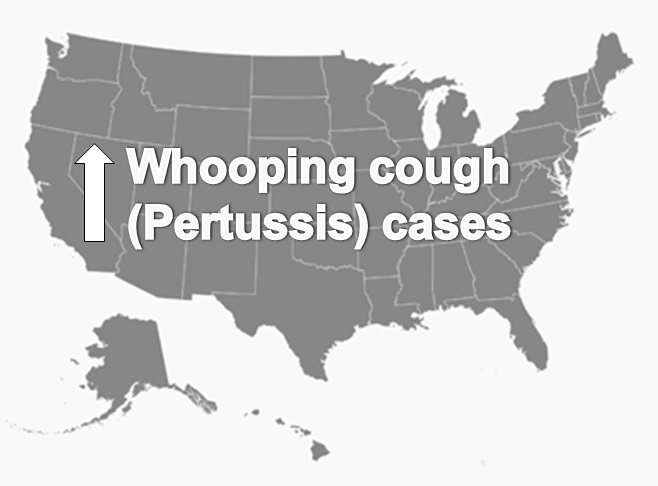Lessons for Africa As US Whooping Cough Cases Rises
DLHA Staff Writer

US whooping cough (Pertussis) cases rising (2025)
April 30, 2025 - The United States is seeing a rise in whooping cough (pertussis) cases and public health officials are warning of another difficult year of battling the disease, according to a report from the Associated Press
So far this year (2025), preliminary data from the U.S. Centers for Disease Control and Prevention have reported 8,485 cases. This is twice as many cases as the same time last year, based on the CDC’s data.
As vaccination remains the best way to prevent whooping cough and many other communicable diseases, US public health experts are concerned that the outbreaks of vaccine-preventable illnesses, like measles and whooping cough, could be signs of changing attitudes toward vaccines in the country. Notably, nursery age vaccination rates fell last year, and the number of children receiving vaccine exemptions has risen considerably..
Two states hit hardest by the illness last year were Pennsylvania and Michigan while two babies in Louisiana and a 5-year-old in Washington state have died from whooping cough in the last six months according to the AP report.
As the illness is most dangerous for infants, especially before they receive their first round of vaccinations, vaccination is also recommended for mothers during pregnancy – to protect the newborns. But not enough pregnant women are getting the vaccine.
Whooping cough is usually spread through respiratory droplets in the air, when people with the condition cough, sneeze or breathe close to others. The symptoms are similar to a cold but the cough becomes increasingly severe with a distinctive sound — a “whoop” as the person tries to take in air. It is treated with antibiotics.
In the US, the pertussis vaccine, which also protects against diphtheria and tetanus, is given at two months, four months and six months and the CDC recommends adults get follow-up doses every 10 years.
Although data on the burden of whooping cough in babies across sub-Saharan Africa are limited, it is generally believed in African clinical and public health circles to be quite high with corresponding high rates of death. To reduce this burden, African governments and their public health managers must act proactively by taking the following steps among others::
Source: Associated Press Article
Related: Childhood Vaccines and Routine Immunization In Nigeria
Published: April 30, 2025
© 2025. Datelinehealth Africa Inc. All rights reserved.
Permission is given to copy, use and share content for non-commercial purposes without alteration or modification and subject to source attribution.
DATELINEHEALTH AFRICA INC., is a digital publisher for informational and educational purposes and does not offer personal medical care and advice. If you have a medical problem needing routine or emergency attention, call your doctor or local emergency services immediately, or visit the nearest emergency room or the nearest hospital. You should consult your professional healthcare provider before starting any nutrition, diet, exercise, fitness, medical or wellness program mentioned or referenced in the DatelinehealthAfrica website. Click here for more disclaimer notice.